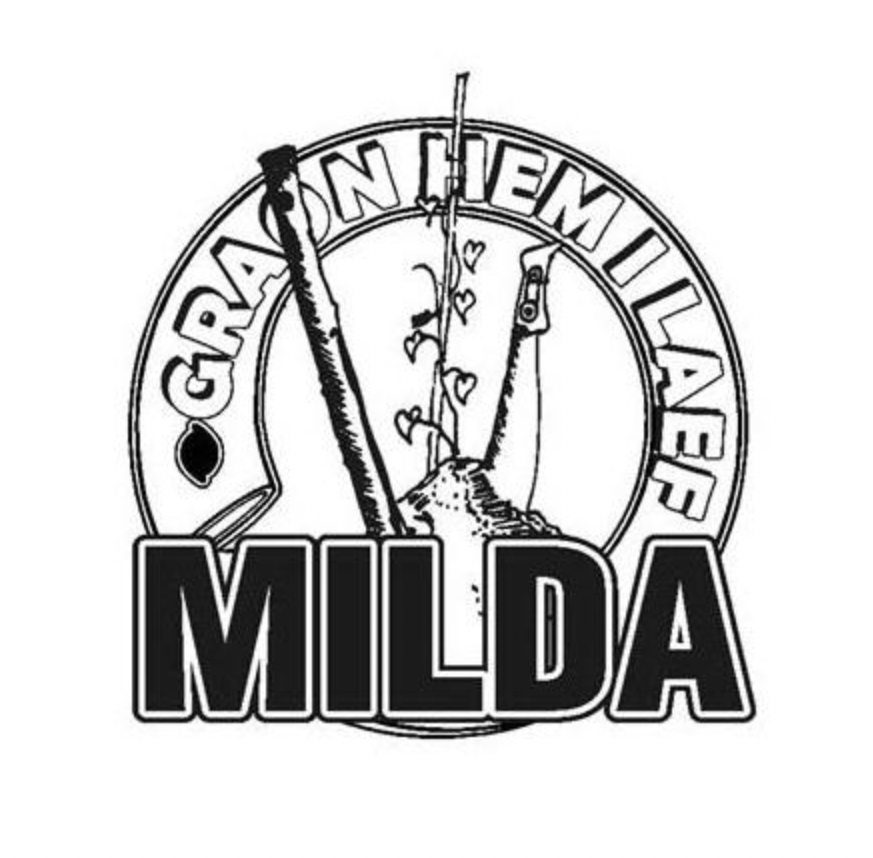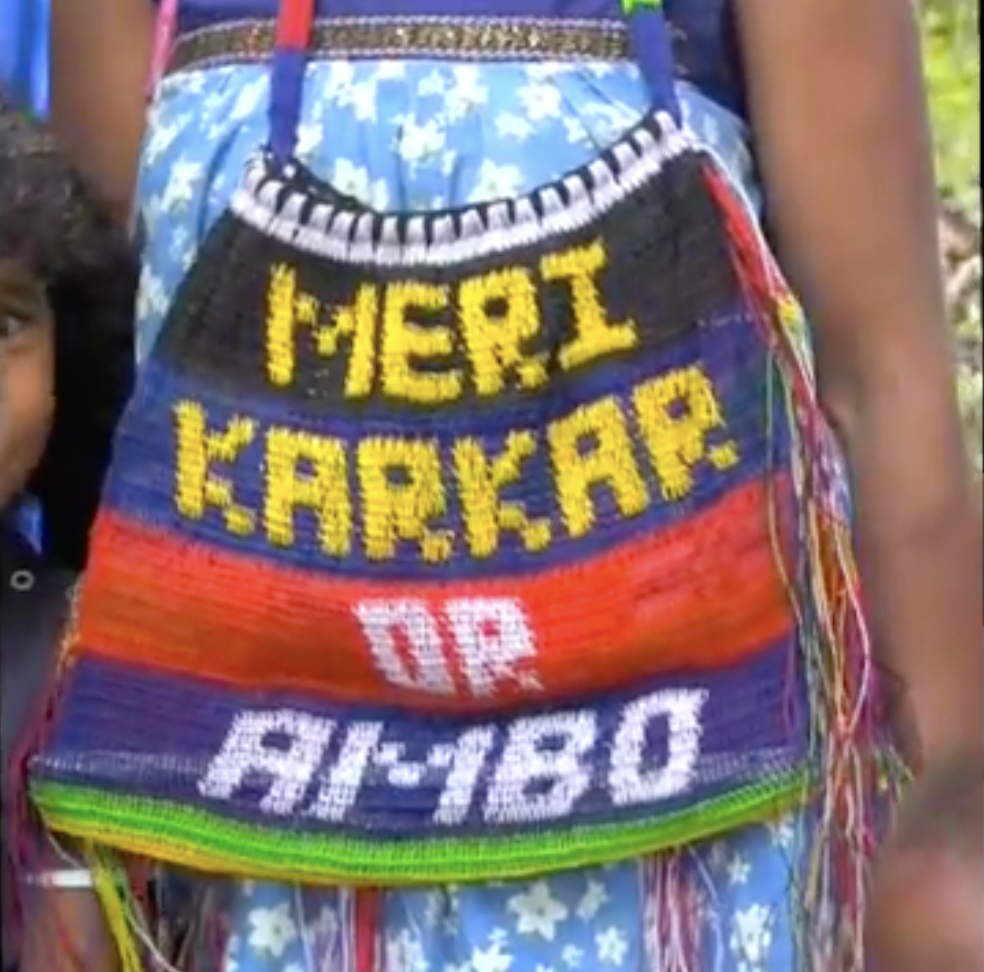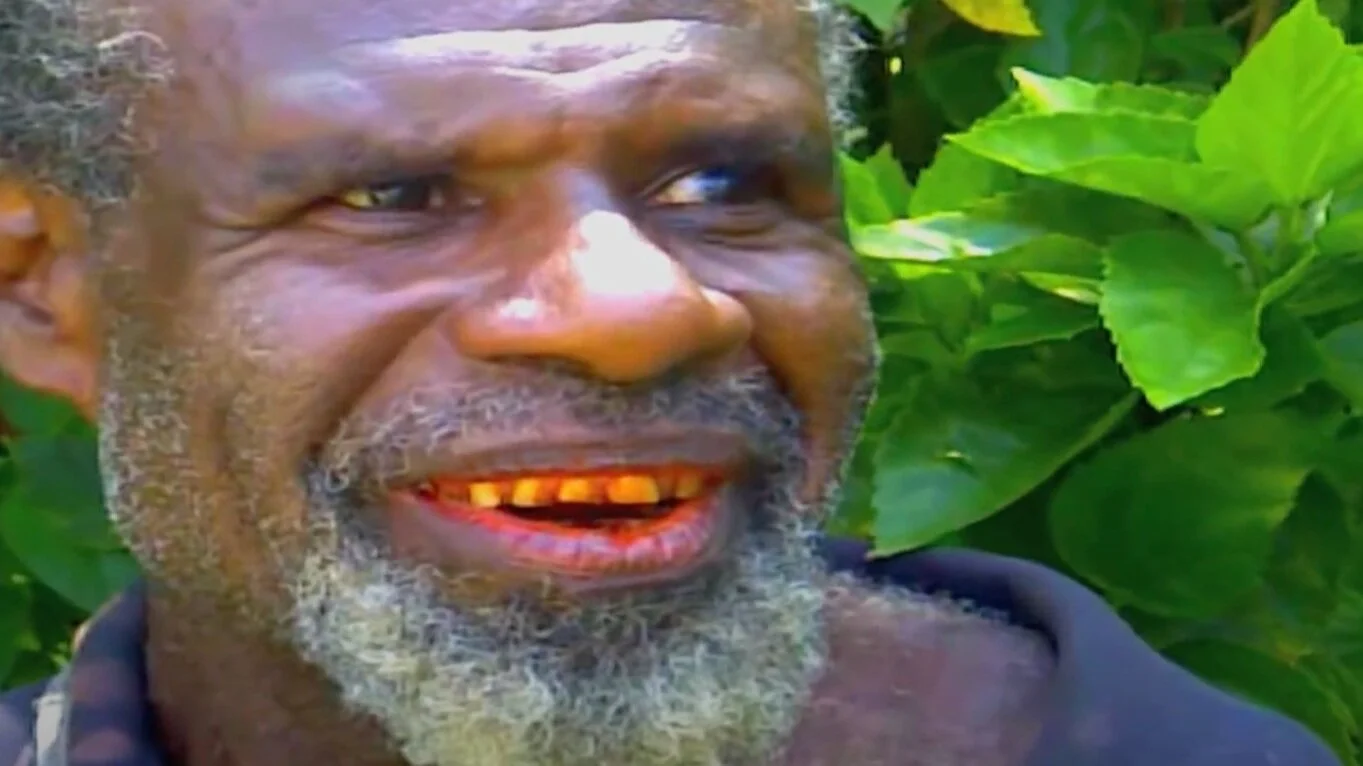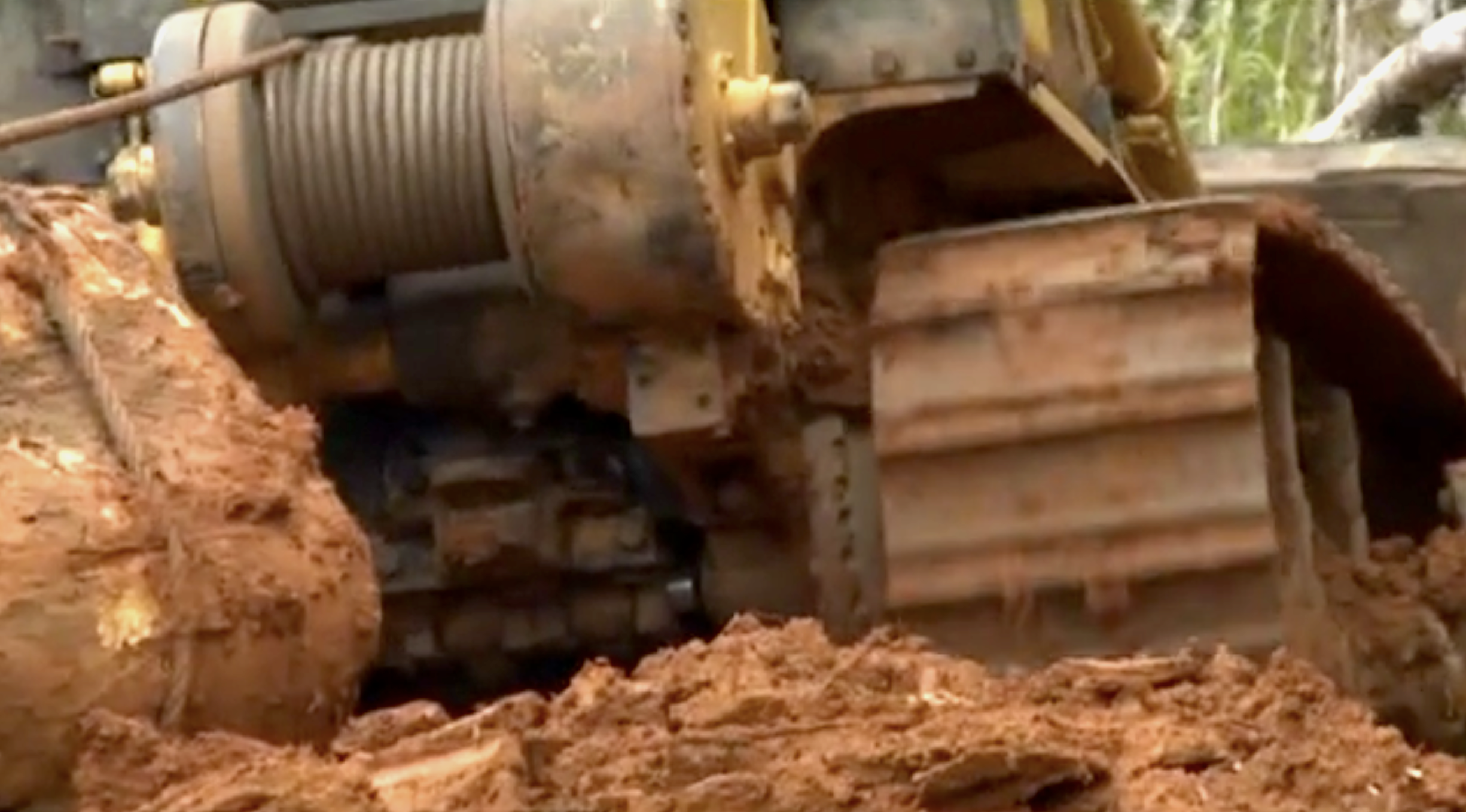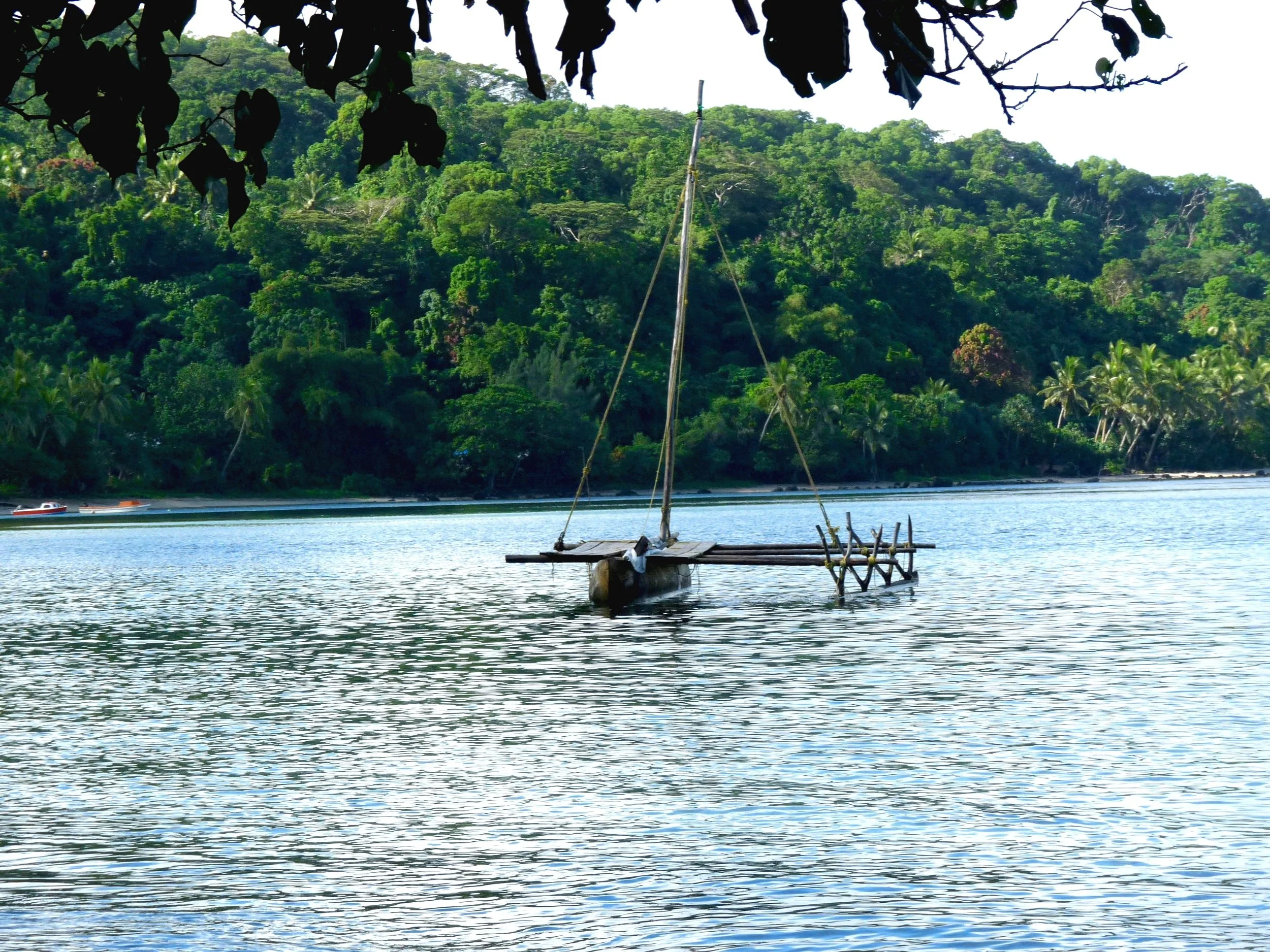
Videos

Maohi Lives Matter
Over the last 50 years, France has continued to deny the tragedies of nuclear testing in French Occupied Polynesia by propagating the theory of “clean nuclear tests.” Hilda Lini of MILDA sends a message of solidarity
-
![]()
Women in Agriculture
Everyday in Papua New Guinea's rugged eastern Highlands province, the nation's biggest business success story is taking place. It is the story of women farmers. In PNG, where up to 97% of land is owned by the people, land is life. And women are the backbone of the land. But they earn little government respect for the vital role they play, and support from men is lacking. The women leaders of the group 'Eastern Highlands Women in Agriculture' works with over 1,500 of these unsung heroes on whose backs PNG's real economy leans. In this documentary, meet some of the women doing remarkable things through their creativity, compassion and determination. They hold the future of a better PNG in their hands. Video by Our Pacific Ways
-
![]()
Well-Being in Vanuatu
A documentary highlighting some of the key findings from the pilot study on ni-Vanuatu well-being conducted between 2010-2012 by the Malvatumauri National Council of Chiefs and the Vanuatu National Statistics Office. The study is part of the 'Alternative Indicators of Well-Being for Melanesia' project, endorsed by the Melanesian Spearhead Group and set to roll out to Papua New Guinea, Solomon Islands, and Fiji in 2013.
-
![]()
Profit and Loss
From Papua New Guinea rainforests to Canada’s tar sands, Profit & Loss exposes industrial threats to native peoples’ health, livelihood and cultural survival. In Papua New Guinea, a Chinese government owned nickel mine has violently relocated villagers to a taboo sacred mountain, built a new pipeline and refinery on contested clan land, and is dumping mining waste into the sea. In Alberta, First Nations people suffer from rare cancers as their traditional hunting grounds are strip-mined to unearth the world’s third-largest oil reserve. By Films for Change
-
![]()
Sisters in Development
While the fruits of big-business development continue to pass them by, women throughout Papua New Guinea are turning to their colourful traditional customs to support their communities. Last month, Our Pacific Ways witnessed an inspiring ceremony where sacred customs blend with new beginnings. Visit ourpacificways.wordpress.com to learn more about Pacific communities reclaiming their future.
-
![]()
Our Island Our Pride 2 1
OUR ISLAND OUR PRIDE - PROUD TO BE OSIKAIANG - Base Bougainvilleʻs future on agriculture and tourism - NO TO LARGE SCALE MINING - PANAM VILLAGE TOURIST RESORT
-
![]()
People Before Profits
Most development projects, at face value, seem aimed at improving the lives of people. The reality for communities living at or near a project -- be it a dam, a sports complex, or a shopping mall -- is often quite different. Forced evictions regularly do not uphold obligations to fairly consult, compensate, resettle and rehabilitate communities. An estimated 15 million people are affected each year. WITNESS, with partners around the world, are bringing the stories of communities facing human rights abuses and forced evictions to the government officials, the courts and corporations who can make change. For more information about this campaign visit www.witness.org
-
![]()
RALPH REGENVANU VS THE WORLD BANK & AUSAID | Praxis Discussion: Pacific Futures
The Pacific is a unique and diverse region, with 9 million people scattered over thousands of islands, a third of the globe's surface, but only a tiny fraction of its land. What does the future look like for the Pacific region? Will aid help or hinder development? What are the challenges for development? Recorded in Sydney Australia as part of the Praxis Discussion Series, this discussion features four expert speakers: Member of Parliament for Port Vila, Vanuatu Ralph Regenvanu; Head of AusAID's Pacific Division, Rob Tranter; World Bank Country Director for the Pacific Ferid Belhaj and Biman Prasad, Professor of Economics at the University of the South Pacific.
-
![]()
The Dark Side of Investment
Movements around the world have put the spotlight on bailouts and tax evasion that have enriched the 1% at the expense of the 99% but this is only part of the picture. This popular video animation exposes how international investment agreements are also at the heart of an international economic system that is enriching a small corporate elite at the public expense. This video shows how: •corporate lawsuits against governments have risen by almost 1200% since 1990 •Argentina's legal bill for fighting corporate lawsuits has come to US$ 912 million, equivalent to the annual average salary of 140,000 teachers or 75,000 public hospital doctors • corporate lawyers, based mainly in the UK and US, are earning around $800 dollars an hour encouraging corporations to sue governmentsI
-
![]()
LONG TUHAT BILONG MIPLA - FROM OUR OWN SWEAT [DOCUMENTARY]
Betelnut, known locally as Buai is the fruit of the Areca palm. It is a stimulant traditionally used in ceremonies. Today it is a cashcrop widely traded in PNG. Through the trade many communities have become self-sufficient and able to choose the kind of development they desire
-
![]()
Fool me once: The regional lessons from the impacts of Tonga's WTO accession
"Fool me once: The regional lessons from the impacts of Tonga's WTO accession" is a look through the eyes of Tongans what membership to the World Trade Organization has meant for them and their country. Tonga became a member of the WTO in 2005 under what has been described as "arguably the worst terms ever offered to any country" - requiring the Pacific Island nation to make wide ranging and binding commitments on trade liberalisation. Speaking about the impacts as felt through a cross-section of society, this video documents how the promised benefits of WTO membership have failed to not only materialise but have increased hardship across the country. The film ends with a plea to other Pacific countries considering joining the WTO to learn from their mistake and not be fooled by the promises that accompany membership. The documentary was produced by the Pacific Network on Globalisation (PANG). For more information see www.pang.org.fj
-
![]()
BUILDING A NATION: WRITING THE CONSTITUTION
One of the founding fathers of Papua New Guinea, John Momis talks about the days before the end of colonial rule and who was involved in writing the Papua New Guinea Constitution. As Deputy Chairman of the Constitutional Planning Committee, John Momis travelled to every patrol post in what was the Australian Territory of Papua New Guinea. They sought views from people a wrote the constitution. Momis says the constitution is detailed because it seeks to protect people from external exploitation and protects Papua New Guineans from their own government. Film by Scott Waide
-
![]()
EM GRAUN BILONG MIPLA, THIS IS OUR LAND [documentary]
In 1998, the people of Saussi in the in the Ramu Valley Madang Province (Papua New Guinea) got word of plans that a sugar & oil palm company, Ramu Agri-Industries, was seeking to expand its oil palm plantations into customary land owned by the Saussi. Led by visionary local level government councilor, Aipapu Marai, the Saussi organized several neighboring communities and formed the Ramu Valley Landowners Association (RVLOA). With very limited financial resources and no legal support, they began a five year battle against Ramu Agri Industries. Armed with information about the negative impacts of oil palm in other provinces and other countries, the Saussi stood firm and told the company and the Papua New Guinea Government that they were not going to allow oil palm on their land. In the words of one of their own: "WE DON'T WANT TO BECOME SLAVES TO THE COMPANY ON OUR OWN LAND." Instead of oil palm, they chose to remain in control of the land and all their resources and make their own money by selling cocoa, watermelons, peanuts and fish. Today, each household earns between USD15,000 and USD25,000 with the women having a significant portion of control over income generation and spending.Description goes here
-
![]()
Stopping Land Theft on Ramu
Melchior Warre, a Papagraun (customary landowner) from Papua New Guinea's Madang Province, is attending a commission of inquiry investigation hearing into the use of Special Agriculture Leases (SABLs). Mel says why his Ramu People are against 99-year Special Agriculture Business Leases (SABL). Through agreements that appear legal, the leases take away land rights from landowners for at least three generations. Certain clauses in the lease agreements also allow foreign companies to sue customary landowners. The Commision of Inquiry has, so far, compiled a mountain of evidence that show that ordinary people have been cheated by foreign companies and middlemen. The people of the Ramu were among the first people to raise concerns about SABLs after a company began logging in the area. Film by Scott Waide
-
![]()
Marovo Chapter 2 - Promises: Broken Oil Palm Promises In Solomon Islands
This short video documents the broken promises of oil palm company Sylvania Limited which has deserted the people of Marova leaving them with only broken promises after logging out their forests; mirroring the experiences of communities in Papua New Guinea who have suffered the loss of their forests under Special Agriculture Purpose Business Leases. Thanks to Act Now! for sharing
-
![]()
Sausi - Village Cooperation
A community in PNG which resisted oil palm monocultures and is developing its own forms of co-finance and development
-
![]()
Portions of Paradise
Video created by SoulPNG on the threat to Ni-Vanuatu landowners from Australia's aggressive foreign policies. An AusAid-supported land reform program fuelled a land grab by Australian owned real estate companies based in Vanuatu. While reforms may be seen as a path to economic development, the Ni-Vanuatu are being robbed of their traditional rights to fish, hunt and live on what was once their ancestral land. Critics of the land reform program point out that a there is an increasing undercurrent of dissatisfaction among the younger generation who no longer have access to the resources that their parents once had.
-
![]()
Numalin Mahana speaks on land in Vanuatu
Numalin Mahana speaks on land in Vanuatu (Mele village, Efate island, Vanuatu, June 2010)
-
![]()
Chief Selwyn Garu on land in Vanuatu
Chief Selwyn Garu speaks on customary land in Vanuatu and the problems brought about by (Australian-backed) attempts to commercialise it.
